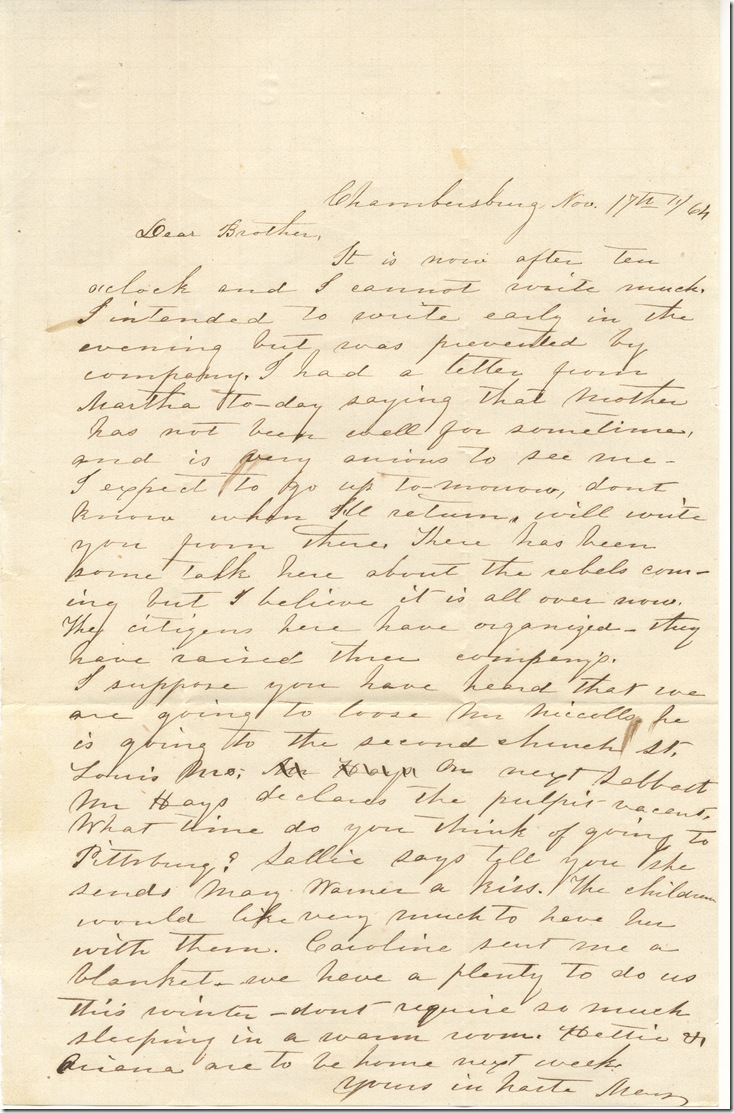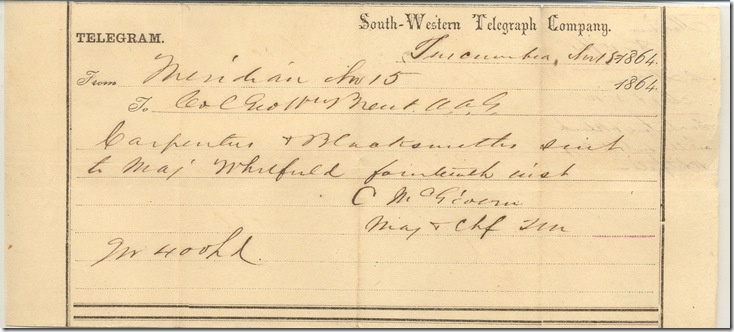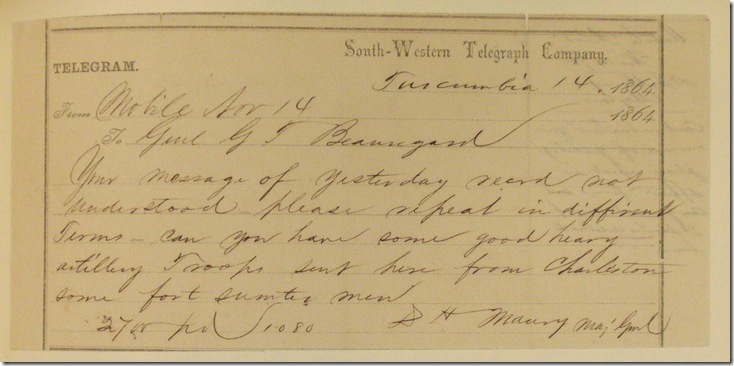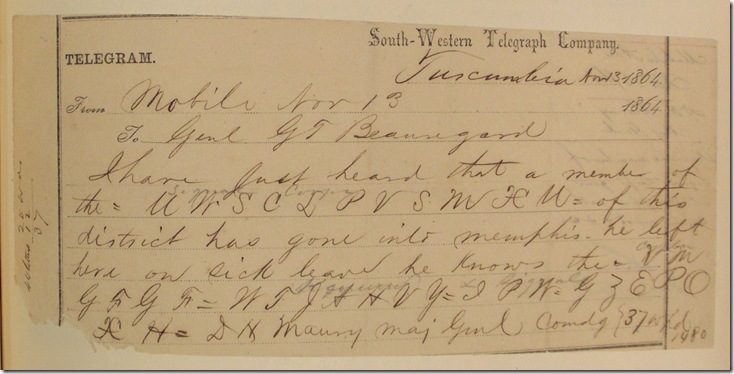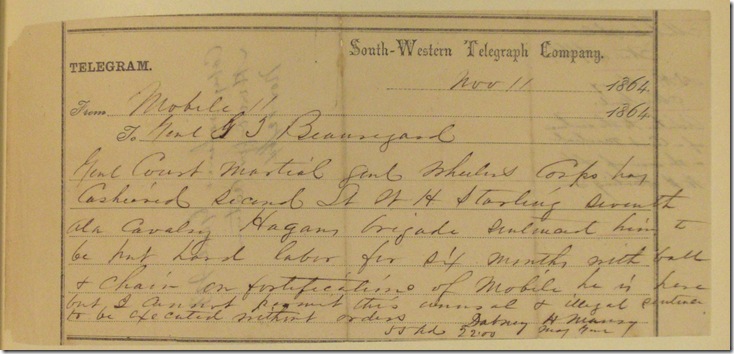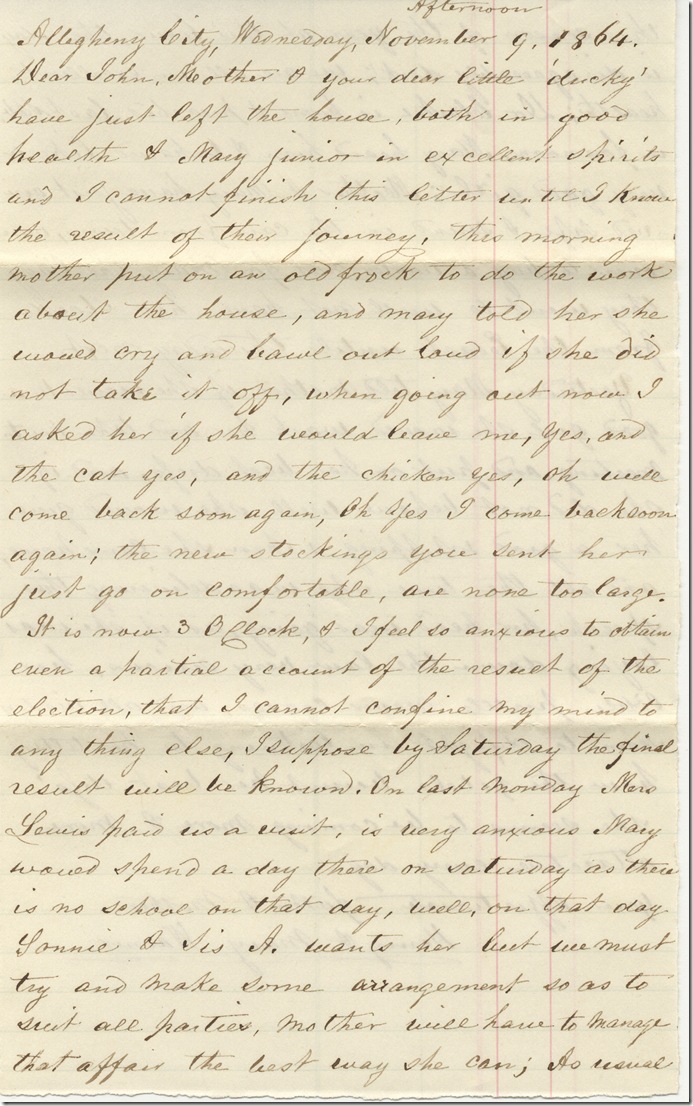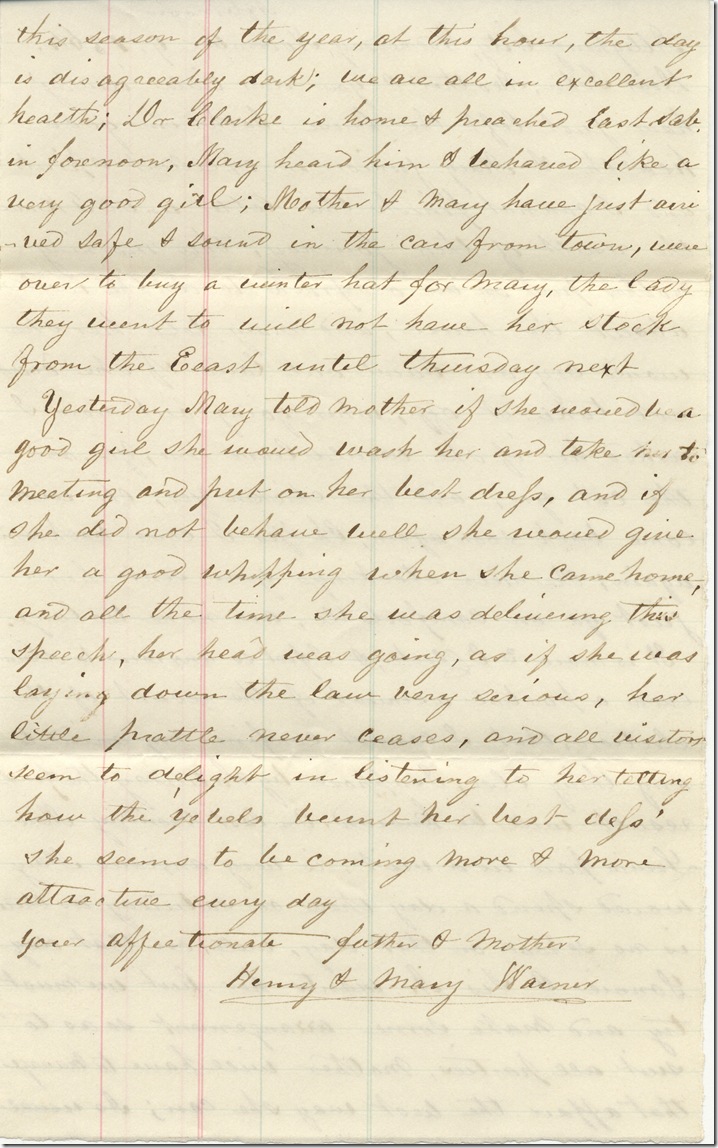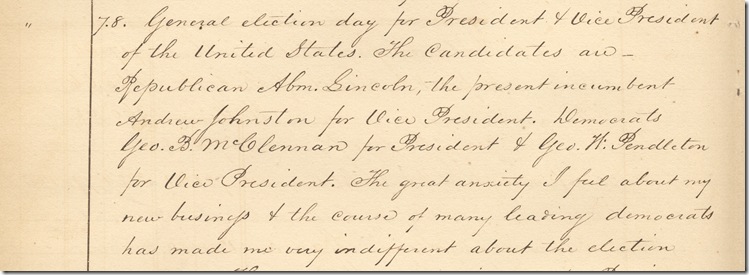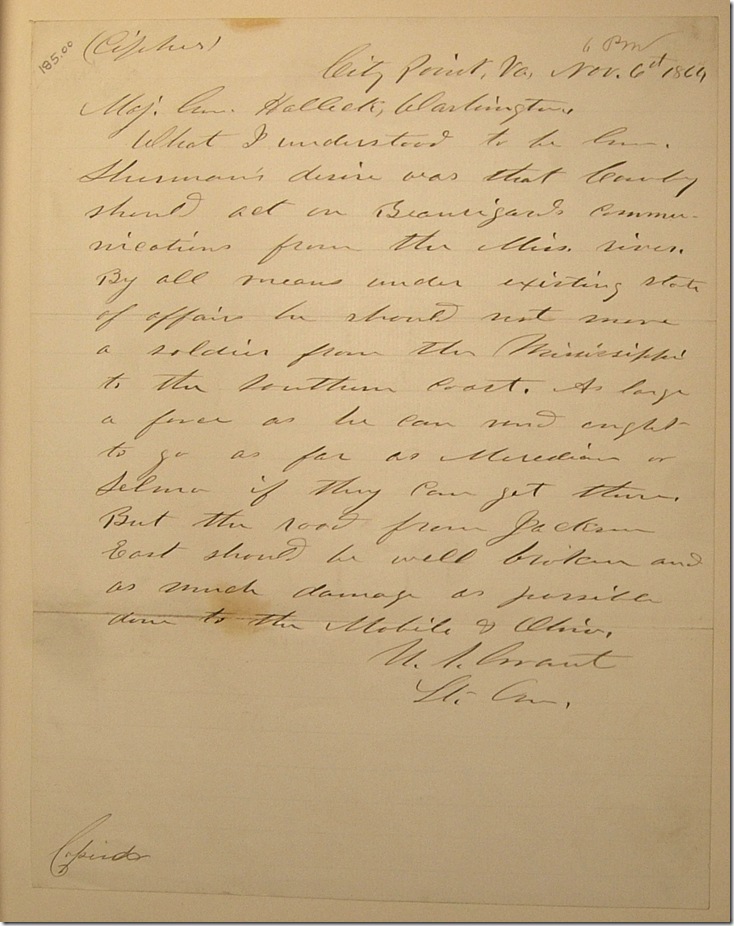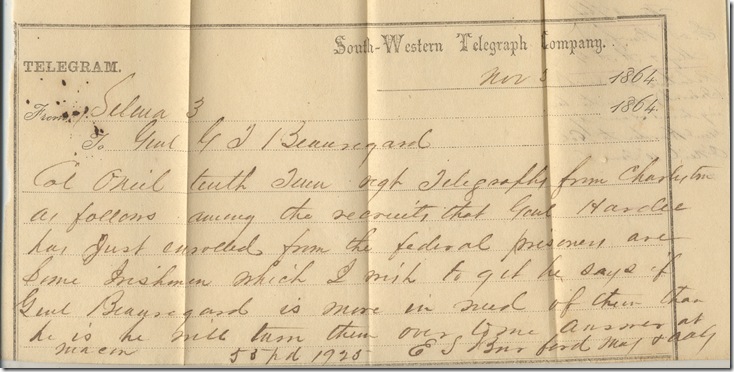Rev. John Riddle Warner was the grandfather of the poet Marianne Moore and during the Civil War, he lived in Gettysburg, Pennsylvania. Mary Craig Eyster was his sister-in-law, who lived in Chambersburg. These letters are preserved as part of Marianne Moore’s family papers.
Transcript:
Chambersburg, Nov. 17th/64
Dear Brother,
It is now after ten o’clock and I cannot write much. I intended to write early in the evening but was prevented by company. I had a letter from Martha to-day saying that Mother has not been well for some time, and is very anxious to see me—I expect to go up to-morrow, dont know when I’ll return, will write you from there. There has been some talk here about the rebels coming but I believe it is all over now. The citizens here have organized—they have raised three company’s. I suppose you have heard that we are going to lose Mr Nicolls he is going to the second church St. Louis Mo. On next Sabbath Mr Hays declared the pulpit vacant. What time do you think of going to Pittsburg? Sallie says tell you she sends Mary Warner a kiss. The children would like very much to have her with them. Caroline sent me a blanket—we have a plenty to do us this winter—dont require so much sleeping in a warm room. Hettie & Ariana are to be home next week
Yours in haste
Mary
Citation: Mary Craig Eyster, autograph letter signed to John Riddle Warner. Chambersburg, Pa.; 17 November 1864. Moore VI:06:11
